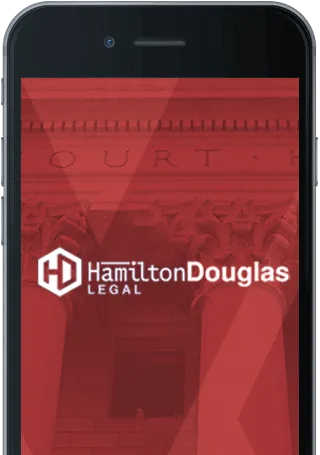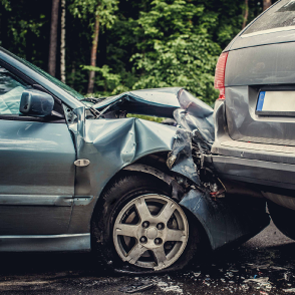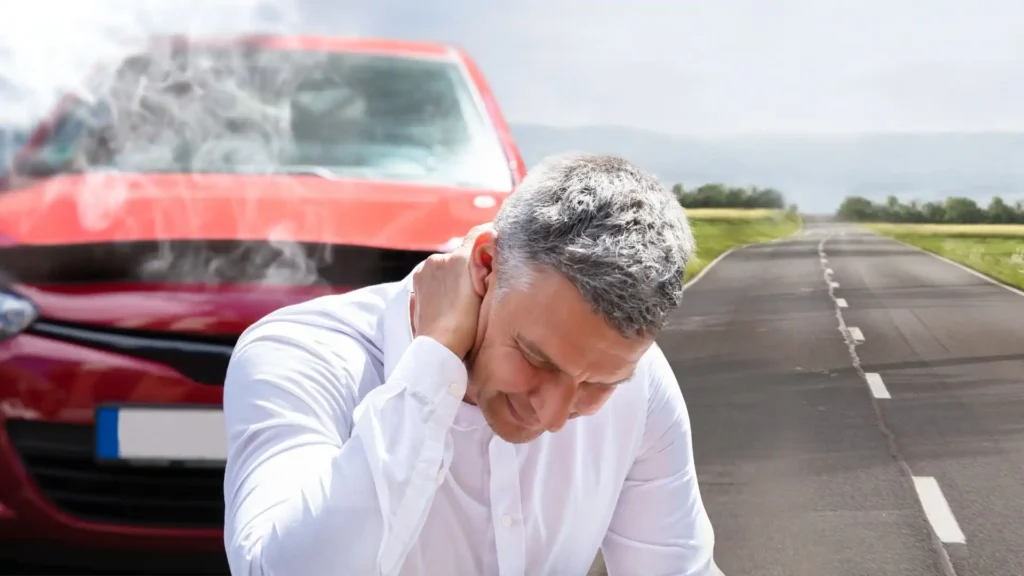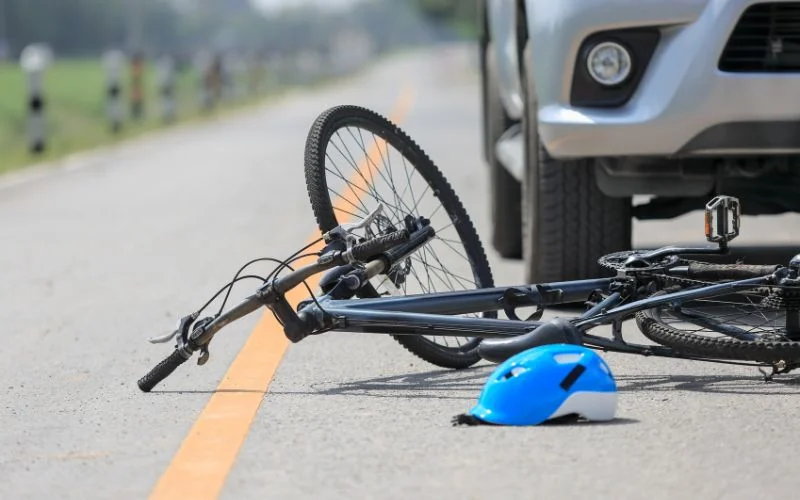- Obligation-Free Consultation
- No Win, No Fee
- Award-Winning Lawyers
As Featured In:

Check Out Our Awesome Reviews Below:
EXCELLENTTrustindex verifies that the original source of the review is Google. My insurance company recommended a firm that charged 30% and had poor reviews. I went with Hamilton Douglas instead, who charged far less and were completely transparent. They were professional, communicative, and secured me an excellent settlement. Do your research and pick them.Posted onTrustindex verifies that the original source of the review is Google. Very good service and excellent legal advice provided by HD Claims. Their team or personal injury lawyers were so understanding and accomodating, and managed to settle my injury claim in a timely manner.Posted onTrustindex verifies that the original source of the review is Google. I want to thanks the entire team, the results were as expected, very prompt and explicit in absolutely all the details provided, I recommend and I will definitely call again in the future,thanks again and i recommend you with all my heartPosted onTrustindex verifies that the original source of the review is Google. HD Claims are the real deal. Their car accident lawyers took my case seriously and got me a great result after my crash. They made the whole process easy and kept me informed every step of the way. Don't hesitate – if you need help after an accident, choose HD Claims. You won't regret it!Posted onTrustindex verifies that the original source of the review is Google. Sorted my car accident claim out super fast!Posted onTrustindex verifies that the original source of the review is Google. I got best service from them, Adnan Bhai helped me a lotPosted onTrustindex verifies that the original source of the review is Google. Friendly and professional service. I would definitely recommend to family and friends. Thank you so much, Adnan!Posted onTrustindex verifies that the original source of the review is Google. Excellent service without a doubt! 5 stars Adnan, have made a difficult time a lot easier with his outstanding support and his communication and desire for the 100% trusted and would not hesitate to recommend you to anyone should they need you.Thank you so much!Posted onTrustindex verifies that the original source of the review is Google. Process handled quickly and professionally. Kept up to date with all handlings of case. Honestly cannot recommend them enough. Thank you.Verified by TrustindexTrustindex verified badge is the Universal Symbol of Trust. Only the greatest companies can get the verified badge who has a review score above 4.5, based on customer reviews over the past 12 months. Read more
Fall From Height Claims – Your Complete Guide to Compensation
Working at height is risky work in any setting in Scotland. You might be on scaffolding on a construction site or on a ladder in an office. If safety steps are missed and you are injured, our guide on falls from height claims explains what you can do next.
If your employer is at fault, you may be able to make a personal injury claim for your pain and suffering. Your claim can also cover treatment costs and loss of earnings if you have had to take time off. We explain the process in plain language so you know where you stand.
We offer a free first chat to assess your situation and give clear, no-obligation advice. If your case is strong, we can link you with a trusted accident-at-work solicitor in Scotland. If you both agree to proceed, the claim can run on a No Win No Fee basis to reduce stress.
Acting early can make a real difference to the strength of your case. Quick legal advice helps protect evidence and can improve your chances of fair compensation. For free advice today, call us on 0141 2801112.
Speak to our compensation experts
It doesn't cost you anything to know where you stand.
Fill out the form, and we'll get back to you within one hour.
Need to speak to us sooner?
Call us on 0141 280 1112
- Over £3+ Million in Settlements
- No Win, No Fee
- Supporting Scots Since 2010
- 10 Offices Around Scotland
Request a FREE call
Am I Eligible to Make a Fall From Height Claim?
You may be eligible to make a falls from height at work claim in Scotland if your employer failed to keep you safe and you were injured.
Employers have a legal duty to protect workers under the Health and Safety at Work etc. Act 1974.
If your role involves working at height, the Work at Height Regulations 2005 also apply in Scotland and are designed to prevent accidents.
To meet their duty, employers should:
- Avoid work at height if possible, such as if there is a safer method available.
- Provide the right equipment to prevent falls when height work cannot be avoided.
- Reduce both the height and the time spent at height where possible.
- Make access safe and make sure that there are exit routes for all staff.
- Train everyone to work at height safely.
- Maintain ladders, scaffolding, and platforms so they are fit for purpose.
- Carry out regular risk assessment and plan emergency rescue.
You could claim, if your employer ignored these steps and you suffered injuries as a result. Most claims rest on three points that are simple to check. Your employer owed you a duty of care; they were negligent, and your injuries can be clearly linked to the fall.
If this sounds like your situation, it is a good idea to get advice as soon as you can. A short call with a specialist can confirm if you have grounds to claim and what evidence will help. Early guidance can protect your position and improve the prospects of you getting fair falls from height compensation under Scottish law.
How to Start a Work Accident Claim After a Fall From Height?
Starting falls from height compensation claims in Scotland is simpler when you follow a few clear steps. First, get the medical help you need and tell your employer about the accident as soon as you can. Early action protects evidence and supports your case.
Keep a record of what happened and gather proof that shows how you were injured. This includes photos, witness names, and your medical records. Save receipts for treatment, travel, and any care you needed at home.
Here is a practical way to begin your claim.
- Get treatment and ask for copies of your medical records.
- Report the accident and ask for an entry in the accident book.
- Take photos of the fall scene and the equipment used.
- Collect witness details and save all receipts somewhere you can find them when you need them.
- Speak to our panel of personal injury solicitors in Scotland for free advice.
If a loved one died after a fall at work, you may be able to claim. In Scotland, you generally have three years from the date of death to start a claim. You can seek compensation for funeral costs and financial damages, including lost earnings and pensions, to support your family.
Types of Fall From Height Injuries We Handle
Falls from height can cause a wide range of injuries in Scotland. We support people in accident at work claims across many sectors, from construction to retail. Every case is different, so we focus on your recovery needs as well as fair compensation.
We regularly help with the following injuries.
- Broken bones and multiple fractures
- Fall from height head injury claims, including concussion and traumatic brain injury
- Neck and back injuries, including spinal damage and paralysis
- Soft tissue injuries, such as sprains and soft tissue damage
- Psychological harm, including anxiety and post-traumatic stress
- Life-threatening injuries and complex trauma
- Fatal injuries, with support for loved ones
Some injuries heal with time and care, while others permanently change your day-to-day life for the worse. Whatever your situation, we will explain your options in clear terms and help gather the right evidence. If you or a loved one has been hurt in a fall at work, we can review your case for free and find out if you can make a claim.
Examples of Workplace Accidents Caused by Falling from a Height
Falls from height can happen in many work environments across Scotland. When basic safety steps are missed, the results can be severe and may lead to fall from height injury claims. In the worst cases, people may need lifelong care, such as in situations like fall from height brain injury claims.
Here are clear examples of negligence that can cause a fall.
- Being told to work on scaffolding during high winds or heavy rain
- Using a ladder that the employer knew was cracked or poorly maintained
- Working on a scissor lift without a safety harness or proper edge protection
- Falling after overreaching from a ladder because no safe working at height training was provided
If any of these situations match your accident, you could have a strong basis to claim. Tell us what happened, and we will explain your options in plain language. We can help you start the claim process and protect your position.
Making A Personal Injury Claim In Scotland
Our panel of experienced personal injury lawyers excel in handling cases against well-funded insurance companies.
Our specialised injury lawyers will assist you with your claim, keep you informed throughout the whole process, and provide you with legal advice that is easy to understand.
01
Get In Touch.
Tell us your story, we're here to listen and provide you with an initial assessment based on your circumstances.
02
We’ll Prepare Your Claim.
We'll be by your side to take care of the legal process. We'll keep you informed of every step of the way.
03
Receive Compensation.
If your claim is successful, we'll ensure that you get your compensation as soon as possible.

"A Student’s Journey from Trauma to Triumph: Efthymios’s Fight for Justice After a Devastating Car Accident"
When Efthymios was injured in a car accident, he was left with severe facial injuries. He didn’t know how he would manage his recovery and studies.
“When I got in contact with HD Legal, they made me feel supported. They were incredibly understanding and fought hard for me, ensuring I received the compensation I deserved.”

"Cracked Pavement, Broken Ankle: How HD Legal Helped Margaret Find Justice and Peace of Mind"
When Margaret tripped on a neglected crack in the pavement in Glasgow, she shattered her ankle and was forced to take months off work, unsure how she would manage.
“HD Legal were a lifeline for me. They took care of everything—from gathering crucial evidence to battling the council—and gave me the peace of mind I needed to focus on my recovery.”

"Blown Away: HD Legal Fights for Douglas After Faulty Washing Machine Explosion"
When Douglas’s new washing machine exploded, it caused a fire that damaged his kitchen and left him with painful burns.
“HD Legal fought relentlessly for me when it seemed like no one else would. They were thorough, professional, and supported me every step of the way, helping me recover both physically and financially.”

"From Misdiagnosis to Recovery: How HD Legal Fought for Eilidh’s Justice and Secured the Care She Needed"
When Eilidh’s severe abdominal pain was repeatedly misdiagnosed, her condition worsened, leading to the need for urgent surgery.
“HD Legal stood by me when I felt lost. They were thorough, professional, and fought tirelessly to get me the care and compensation I needed to heal.”

"Falling from Heights, Rising with Justice: How HD Legal Secured Compensation for Alistair After a Workplace Accident Involving Faulty Scaffolding"
Alistair Campbell’s fall from faulty scaffolding left him with serious injuries and months of recovery.
“HD Legal’s panel of solicitors fought for me, ensuring I received the support needed to move forward.”
What To Do Immediately After a Fall From Height Accident at Work
Get medical help:
Your health comes first. Seek treatment straight away so your injuries are assessed and recorded. Your medical notes will support any fall from height compensation claims later.
Record the accident:
Tell your manager what happened as soon as possible. Ask them to document your accident in the site or workplace accident books, including the date, time, location, and a brief description of your injuries. Save a copy for your records.
Gather proof:
If you are able, gather evidence at the scene. Take photos of the area, the equipment, any obstacles, and risks. Write down the names and contact details of witnesses who saw the fall or the risk before it happened.
Speak to a solicitor:
Contact our panel of personal injury solicitors for clear advice on your options. There is a time limit for claims in Scotland, so early guidance is important.
At HD Claims, we offer free initial advice, and our panel’s solicitors can take most personal injury claims Scotland on a no win no fee basis.
Proving Negligence in Fall From Height Claims
Proving negligence begins with a straightforward request to your employer to determine who was at fault. Your solicitor will contact them to see if they accept responsibility for the accident. If they agree, the claim can move forward, and a fair settlement can be discussed.
If liability is denied, both sides exchange evidence. This can include your statement, witness accounts, accident book entries, photos, training records, and any investigation or HSE reports. The goal is to show what went wrong and why it should have been prevented.
Once the evidence is reviewed, responsibility usually becomes clear, and the claim can progress. Your solicitor will walk you through each step and keep you updated. The majority of no win no fee fall from height claims in Scotland follow a straightforward, structured procedure.
The Work at Height Regulations and Employer Responsibilities
The Work at Height Regulations 2005 are designed to stop serious injuries and deaths at work in Scotland. They require employers and anyone in control of the task to assess the risks before any height work starts. Safe working at height depends on proper planning, close supervision, and having trained workers who know how to do the job correctly.
Employers must keep working methods under review and follow current HSE guidance. Training should be kept up to date and easy for staff to access. Everyone should know how to do the job safely and what to do if something goes wrong.
Before work begins, the employer should consider whether the task can be done from the ground. If not, they must choose the right equipment and reduce the time spent at height. Clear and safe routes should be planned in advance, and they must always remain free from clutter or obstacles so workers can move safely.
Protective measures should match the risk. This can include harnesses, edge protection, barriers, and secure platforms. All equipment must be in good working order and checked regularly.
A risk assessment should be carried out before the job starts and checked again while the work is ongoing. If ladders are not safe for the task, other options such as platforms or safer systems should be used, even if this takes more time. The aim is always to minimise the chance of a fall and the harm it could cause.
Employees also have duties. They should take reasonable care for their own safety and that of others. They also need to take part in training and follow the safety rules at the workplace.
If these duties are ignored and a worker is hurt or a family suffers a loss, a claim may be possible. Clear records, training logs, and inspection reports can help show what went wrong.
What Evidence Do You Need for a Successful Fall From Height Claim?
To succeed with a fall from height claim in Scotland, you need clear evidence of what happened, who was at fault, and how the injuries have affected you. Strong evidence is useful in demonstrating liability and the full impact on your health and work. It also affects the amount of compensation you can seek.
- CCTV or mobile video footage of the fall can provide useful evidence
- Medical records, treatment notes, and prescriptions
- Photos of the scene, equipment, and risks
- Witness names and contact information
- A copy of the accident report form from work
Keep a record of time off work, care needs after the fall, and out-of-pocket costs. This information can be used to support claims for lost earnings, treatment, and rehabilitation. With solid documents in place, your solicitor can request interim payments to cover urgent costs while the case is moving forward.
During your free consultation, we will go over what you already have and explain what else can help. If additional proof is required, we can advise you on how to obtain it quickly and safely. Early advice can make the process go more smoothly and strengthen your claim.
Time Limits for Making a Fall From Height Compensation Claim
If you are asking how long do you have to make a fall from height claim, the simple answer is usually three years. In Scotland, the general time limit for personal injury is three years from the date of the accident. This comes from the Prescription and Limitation (Scotland) Act 1973.
However, this clock can be paused under certain conditions. If a person loses mental capacity as a result of their injuries, the time limit does not start until capacity is restored. During this time, a relative or other representative may seek authority to act and initiate the claim.
Beginning early is the safest approach. It allows your solicitor to gather evidence while it is fresh, reducing the risk of missing important deadlines. Early action also allows you to focus on recovery while your case progresses.
What Compensation Could You Receive for a Fall From Height Injury?
Every fall from height case is different, so the aim in Scotland is to put you back in the position you would have been in without the accident. Your award can include general damages for the pain, suffering, and impact on daily life. It can also include special damages for the money you have lost or will lose.
Your solicitor will look at your medical records and may arrange an independent medical report. They will use the Judicial College Guidelines to help value the injury part of the claim. These figures guide the court, but the final award depends on your own situation.
Examples of guideline brackets include:
- Mild back injuries up to about £15,260
- Moderate back injuries around £15,260 to £47,320
- Very severe brain injury, roughly £344,150 to £493,000
- Moderately severe head injury, roughly £267,340 to £344,150
- Less severe arm injury around ~£23,400 to ~£47,800
- Significant pelvis injury about ~£32,400 to ~£47,800
- Less severe leg injury up to about ~£33,900
Special damages cover your financial damages and costs. These can include lost income, future earning loss, treatment and rehab, travel for appointments, care and assistance, and home aids or adaptations. Keeping receipts and a record of expenses will help your solicitor show the full value of your claim.
Your final figure is unique to you. Strong medical evidence and clear proof of costs usually lead to a fairer result. Early advice can help make sure nothing important is missed.
Claiming Compensation for Fatal Falls From Height
Losing a loved one in a fall at work is devastating. HSE figures show that falls from height are a leading cause of work-related deaths. We are here to guide families of victims in Scotland with care and clear advice.
You may be able to claim on behalf of your loved one’s estate for their pain and suffering. You can seek compensation for funeral costs and the loss of companionship. If you were financially dependent on their income, you may also be able to make a dependency claim.
The process can feel overwhelming, so we keep each step simple. We explain your options, gather the right evidence, and speak to the insurer on your behalf. Our aim is to secure fair support for your family’s future.
If you wish to explore a claim, please get in touch. A short, free chat can help you understand what comes next. We will handle the legal work while you focus on your family.
Do I Need a Solicitor for a Fall From Height Work Claim?
You can make a fall from height work claim in Scotland without a solicitor. However, most people find the process easier with a specialist on their side. A trained solicitor understands the pre-action steps, the evidence needed, and how to deal with insurers.
Working with a specialist can save time and reduce stress. They can spot issues early, protect your position, and keep your case on track. They also help you avoid quick, low-ball offers that do not reflect your injuries and damages.
What a solicitor will do for you:
- Make your claim correctly and on time
- Gather medical and workplace evidence
- Handle all negotiations with the insurer and fight on your behalf
- Update you regularly in clear language
- Aim for the best result, not the first offer
Our panel of no win no fee solicitors can take your claim on a Conditional Fee Agreement. You do not pay anything up front. If the case does not succeed, you do not pay your solicitor’s fees, and if you win, a success fee is taken from your compensation, capped at 20% of the first £100,000, 10% of the next £400,000, and 2.5% of any amount over £500,000.
If you are unsure, a short free consultation can help you decide. You will get clear advice on your options and what steps come next. This lets you focus on recovery while your solicitor manages the claim.
DEDICATED CLAIMS ADVISORS
Our dedicated claims advisors are always available to offer free legal advice.
100% NO WIN NO FEE CLAIMS
All our claims are processed on a No Win No Fee basis; you pay nothing if you lose.

MILLIONS SECURED IN DAMAGES
To date, we have secured millions in damages.
THOUSANDS OF SATISFIED CLIENTS
To date, we have helped thousands of clients recover compensation and continue to do so.
How Long Do Fall From Height Claims Usually Take?
There is no fixed timetable for fall from height claims in Scotland. Each case is different, and the timeline depends on your recovery, the evidence, and whether your employer accepts fault. Your solicitor will move things forward as quickly as the facts allow.
Straightforward cases tend to be faster. If you have recovered, your employer accepts liability, and the evidence is clear, many claims resolve in about six to nine months. Settlement can follow soon after the medical evidence is agreed upon.
More complex cases take longer. If your symptoms are ongoing, if expert reports are needed, or if there is a dispute about who was at fault, the process can take more than a year. Your solicitor will keep you updated and push for a fair result based on the medical and legal proof.
Get Expert Help With Your Fall From Height Claim
If you plan to take legal action after a fall at work, we are ready to help you wherever you are in Scotland. Your first step is simple and free. We will listen, explain your options, and tell you what evidence will help.
You can call us at 0141 2801112 for a free consultation, or fill out our short form, and we will contact you within 24 hours. There is no obligation, and everything is kept confidential. We keep our advice clear and practical.
If your claim looks feasible, we can connect you with a trusted solicitor who can act on a No Win No Fee basis. This means no upfront legal costs and nothing to pay if the case is not successful. Get in touch today and let us guide you through the next steps.
FAQs
Will making a fall from height claim affect my job?
Most Scottish employers have insurance, so the claim is handled by their insurer, not taken from their pocket. You should not be treated unfairly for making a genuine claim. If you have concerns, a solicitor can explain your rights and how to keep things professional at work.
Can I make a fall from height compensation claim?
Yes, if you were injured, the accident was partly or fully someone else’s fault, and it happened within the last three years. Strong evidence, such as medical records, photos, and witness details, will support your case. A short free chat with a solicitor can confirm your options.
We’re Here To Help When You Need Us Most.
Call us on 0141 2801112, or leave us a message below to request a call back and one of our team will be in touch as soon as we can.






